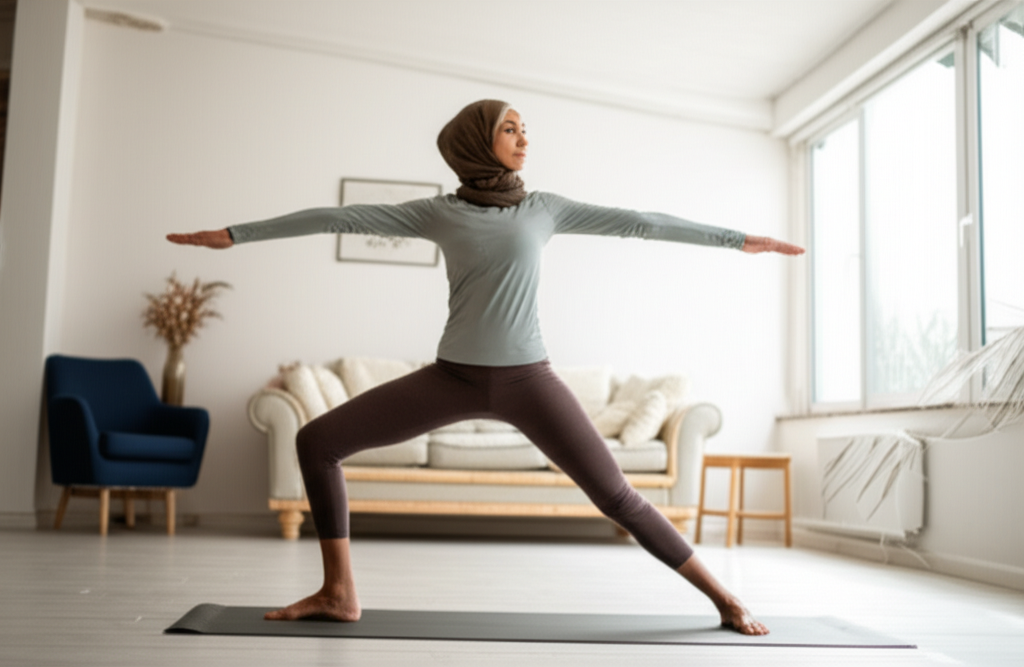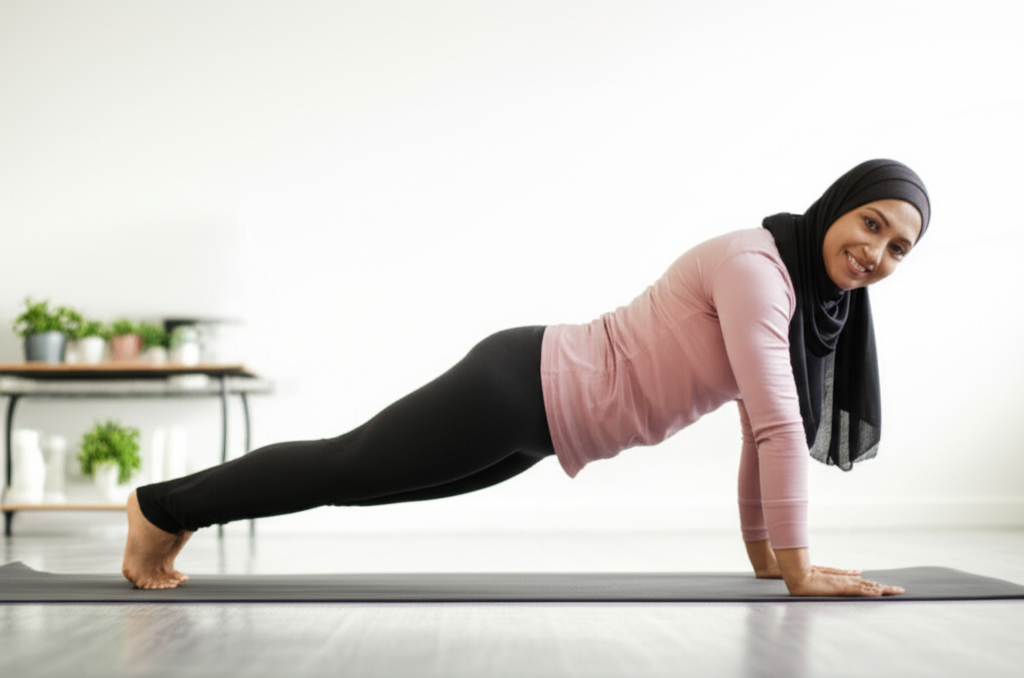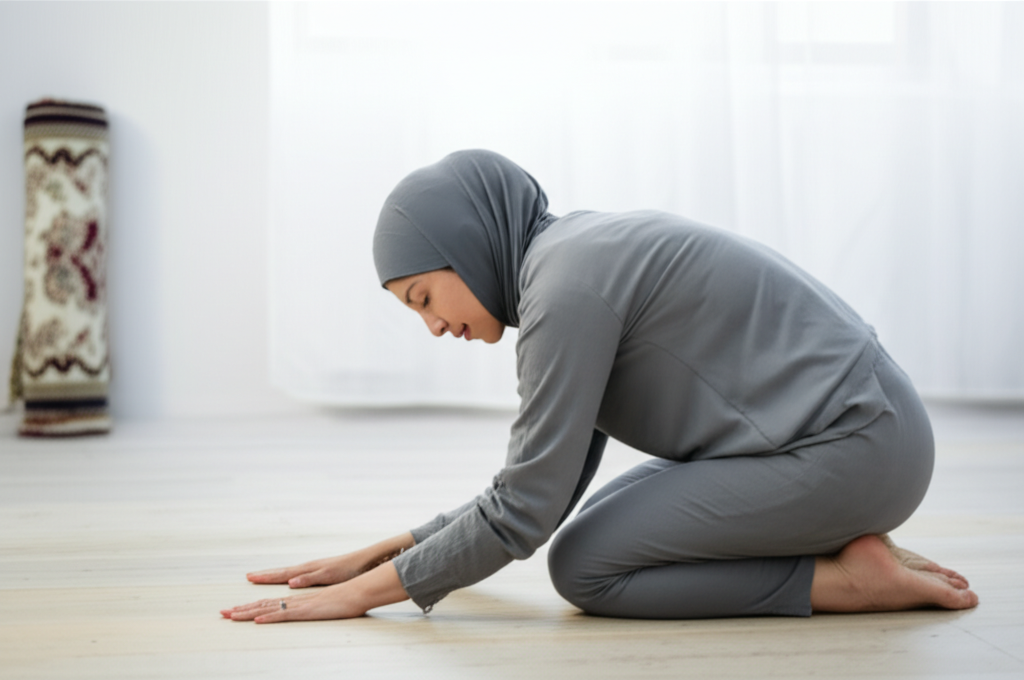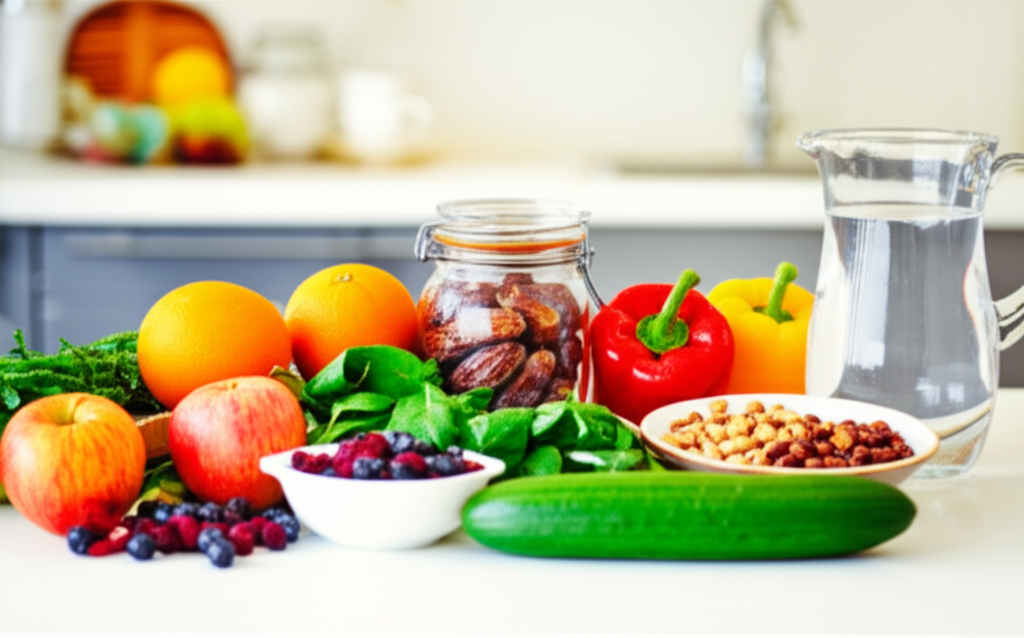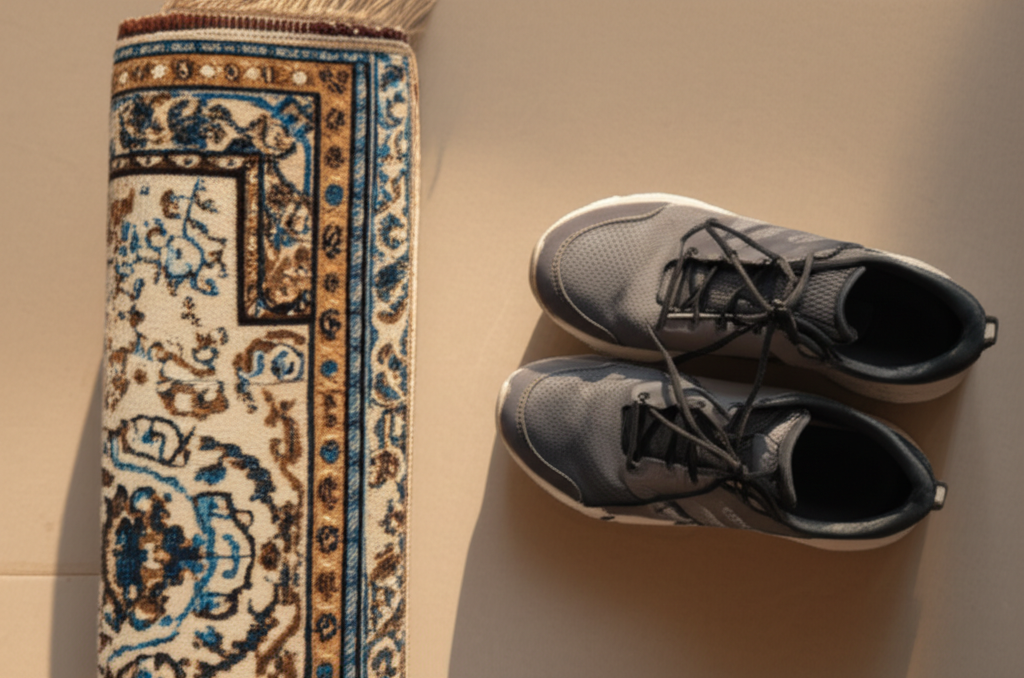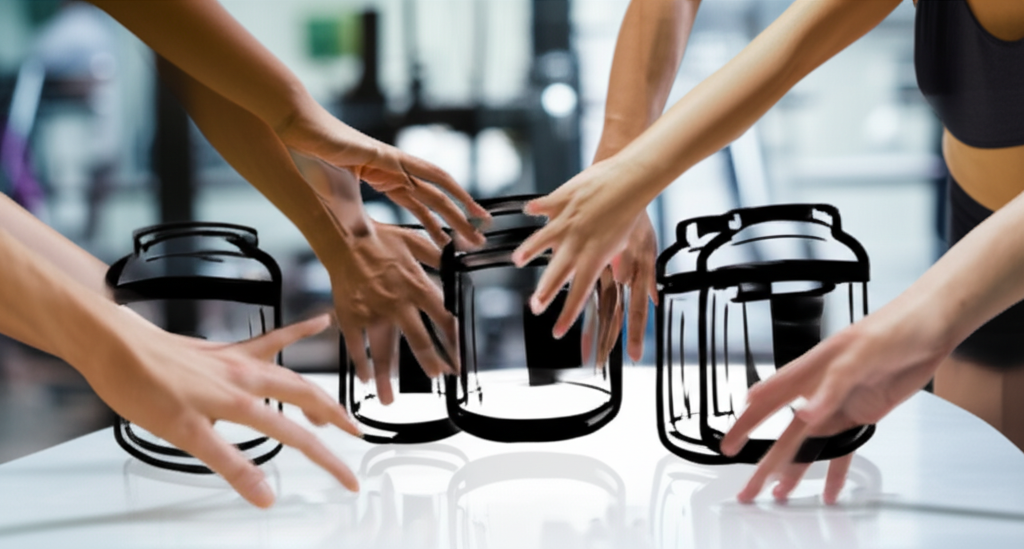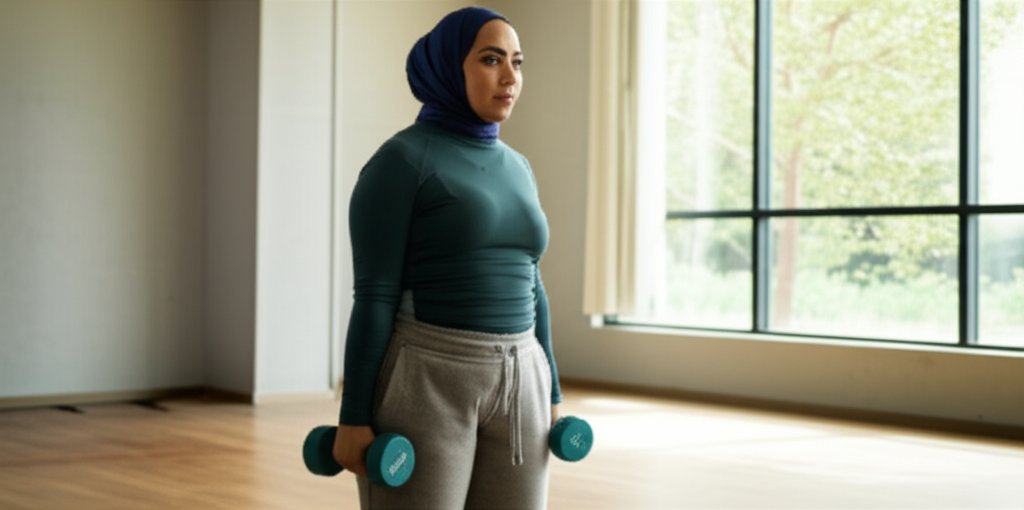Alright, let's talk about fueling your body the Halal way! As Muslim women, we understand that our bodies are Amanah (trusts) from Allah, and nourishing them properly is an act of worship. This section will provide some practical nutrition tips that align beautifully with Islamic principles, helping you maximize your home workout results while staying true to your values.
Firstly, remember the importance of Halal and Tayyib. Halal means permissible according to Islamic law, extending beyond just meat. Tayyib means pure, wholesome, and of good quality. Make conscious choices about where your food comes from and prioritize fresh, whole foods over processed options.
Start your day with a nourishing breakfast! This is a Sunnah. Breaking your fast (even if it’s a night-long fast) fuels your body and mind, preparing you for a productive day, including your workout. Opt for something with fiber, protein, and healthy fats, like dates with milk or whole-wheat toast with avocado.
Hydration is key, especially when you're exercising! Water is essential for everything from digestion to muscle function. The Prophet Muhammad (peace be upon him) emphasized the importance of drinking water, so aim for consistent hydration throughout the day, especially before, during, and after your workouts.
Mindful eating is a fantastic way to practice gratitude and connect with your food. Before each meal, remember to say "Bismillah" (in the name of Allah) and eat with intention. Avoid overeating and focus on savoring each bite. Remember the hadith: "The son of Adam does not fill any vessel worse than his stomach."
Focus on nutrient-dense foods. Fill your plate with fruits, vegetables, lean proteins, and whole grains. These foods provide essential vitamins, minerals, and fiber that support overall health and energy levels for your workouts. Minimally processed carbohydrates like brown rice or quinoa are great sources of energy.
Be mindful of sugar and processed foods. These can cause energy crashes and negatively impact your overall health. While occasional treats are fine, make them the exception, not the rule. Focus on natural sweeteners like dates or honey in moderation.
Remember, moderation is key. Islam teaches us to avoid extremes in all aspects of life, including eating. Don't deprive yourself, but also don't overindulge. Strive for a balanced approach to nutrition that supports your health and well-being.
Finally, always be grateful for the blessings of food and health. Making dua (supplication) before and after meals is a beautiful way to show your appreciation to Allah for His provision. May Allah bless us all with health and strength to worship Him in the best way possible.


